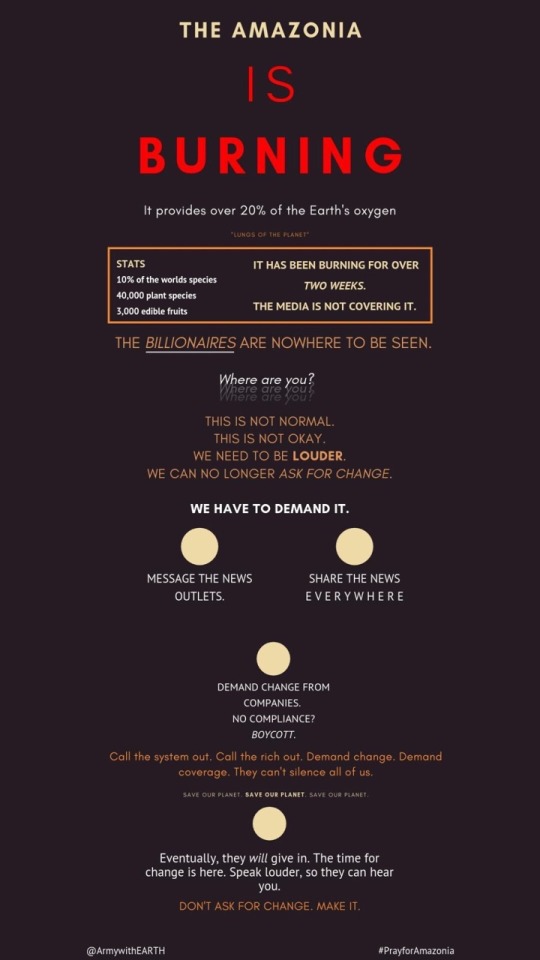
187 posts
Latest Posts by theprodigalgenius - Page 7
Gold looks great on my skin. It's nice when paired with black. I'm Indian. I hv seen a lot of gold jewellery and it only looks good if the white is sparing (like diamonds) and rose gold is so pretty. Gold is good for darker settings as a nice contrast.
hot take: gold is ugly actually
Give megamind full marks you absolute ingrate.
Pukicho movie review, the movies I saw this past week for the first time:
Inglorious basterds: WOOOO BDDDDBBDDBDD!! FIRE KILL! SHOOT KILL <3 WOOOOOOO FIRE FIRE! NO SIR! KILL! 10/10
Falling down: Bang bang violence BANG kill!! <33 KILLL! COOL KILL!!!! But the overacting and stereotypes? 7/10
Megamind: MEGA MIND! ALIEN BLUE GUY, BANG! KILL NERD! 7.5/10
Pls take care of yourself 🥺. You lighten up the day of a lot of people.
I have trained my brain to take any form of criticism or insult without it affecting me at all
Damn. Bolsonaro needs to be stopped.





So, our “Lung” is on fire.
It is already threatened by huge deforestation, to the point it lost 20% of its width in less than 30 years.
It’s been burning for around two weeks and almost no word has been uttered about it. I, sincerely, have come to find out about it just now. I’m shooketh ™️ because we’re really burning away this planet.
The Amazon Rainforest holds 20% of global waters, it’s an area of incredible value in terms of biodiversity and, nevermind, it’s a crucial climate regulator. Spread awareness, demand help.
Baba is urdu for dad. It's grandma in other languages. Try something different.
suggestions for gender neutral version of mom/dad? something less formal than just ‘parent’
K-pop is the best example for me. Look at how many saesangs are there. The idol contracts are so strenuous that they are dubbed as slave contracts. They aren't allowed to date as they and the people they date will be harassed by fans. Imagine thinking you are entitled to a person's private life just because they chose to be a k-pop idol and that they shouldn't date as they belong to you. A lot of idols face this. It's so stupid.
Parasocial relationships aren’t inherently unhealthy. Usually, they’re a perfectly normal and healthy way to experience media. You know what are examples of parasocial relationships?
Kids dressing up in costumes and pretending to be the sidekick of their favorite superhero.
Teens daydreaming about hanging out with members of their favorite band.
Adults reading a funny memoir and finding they now feel positively and care about the wellbeing of the person who wrote it.
Sports fans celebrating because their favorite team won a championship.
Watching a talent show and cheering when your favorite performer wins.
These are enjoyable and typically harmless experiences. Because relationships (parasocial included) are not inherently healthy or unhealthy–it all depends on the parties involved, and the behavior on both sides.
Parasocial relationships become unhealthy when we as audience members over-invest emotionally, fail to set proper boundaries, have unfair/unrealistic expectations or make intrusive demands (for individual attention, for emotional reciprocation, for the other party to serve as a best friend, a lover, a savior, a therapist), or engage in harassment when these expectations are not met. Or, alternatively, when the person/group/corporation on the other end misleads their audience, or uses their influence irresponsibly or exploitatively, or makes promises they cannot follow through on.
Unfortunately, we are seeing a rise in most of these things, in part because the way we consume media has changed very very quickly, and we as a culture have not had enough time to react sanely to these changes and establish healthy behavioral norms around them.
Many of us are struggling with how the illusion of intimacy has hyperevolved—the faces we once saw only on theatre screens and magazines, celebrities who were so removed from us by distance and medium, are now on our phones, in our homes, sharing their private lives with us in previously unimaginable detail. Instead of scripted interviews & crafted photoshoots, we get casual selfies & tweets & constant updates about their clothes & food & activities & private lifestyles. We get videos of celebrities talking to their camera (to us) directly from their own home—as if we are being invited inside. All of this happening on the very same social media platforms and in the same language we use to communicate with friends. Of course our brains are going to get confused, especially if we haven’t been taught how to draw the right boundaries when it comes to watching people in the spotlight.
And most of us haven’t.
Which leads us to what I think is the real problem—not parasocial relationships but Celebrity Culture. This whole culture we’ve been building for decades around inappropriate and invasive interest in the private lives of public figures. Celebrity & paparazzi culture has always encouraged deeply unhealthy patterns of behavior, and it’s been around a lot longer than the internet. But the attitudes it embodies have become the basis for how we treat and think about “famous” people online, and for the shape that parasocial relationships take in the social media age.
The problem isn’t that we’re forming parasocial relationships. Humans will always form parasocial relationships. Jesus christ, religion itself probably fits the definition of a parasocial relationship—what is more parasocial than inventing a god? The problem is that we are forming these relationships without a clear understanding of what constitutes healthy boundaries, reasonable expectations, and appropriate behavior, on all sides. Form as many parasocial relationships as you like, but figure out how to keep them healthy. Manage your expectations, be respectful of privacy, be aware of when you are becoming too involved, know when to step back, and don’t expect it to take the place of interpersonal relationships—your relationships with people who know you exist, and want to reciprocate your time, energy, and interest.
ko-fi
Ah yes, puki's a whole ass junglebook.
why do i feel like you're jungkook.
I am definitely junghook